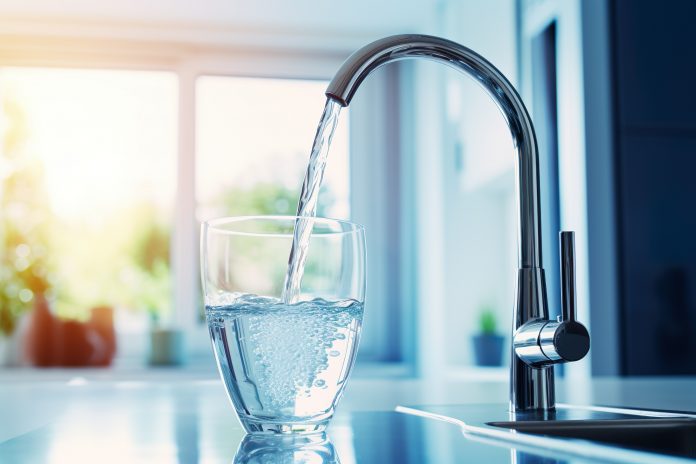The journey of water from its source to our taps is a testament to the intricate and robust management systems designed to ensure its safety and quality.
The water quality management process, involving a vast network of treatment plants, storage facilities, and pipes, is underpinned by the efforts of professionals working across a range of roles in the water industry. In this article, Watertrain, an RSK Group company, delve into the strategies and responsibilities involved in managing water quality within the distribution system.
A Dive into Water Quality Management
Water quality management in the distribution network is a multifaceted endeavour aimed at delivering drinking water that meets strict safety and quality standards. This involves a series of proactive measures including monitoring, treatment, infrastructure maintenance, and regulatory compliance, all designed to safeguard public health.
Source Protection
Protecting water sources from contamination is fundamental. In the UK, this means safeguarding catchment areas from pollutants, be they from agricultural runoff, industrial discharges, or urban development, through careful management and regulation.
Treatment Processes
The UK’s water treatment facilities employ a range of processes to remove impurities, depending on the source water’s condition. Techniques such as coagulation, filtration, and disinfection are standard, ensuring that water meets the rigorous standards set by the Drinking Water Inspectorate (DWI).
Infrastructure Maintenance
The maintenance of the distribution network is critical to prevent contamination. This includes managing the risk of leaks, backflows, and the integrity of pipes to ensure that treated water remains uncontaminated on its way to consumers.
Quality Monitoring and Testing
Rigorous and continuous monitoring, alongside regular testing, is essential to ensure water quality. This encompasses checking for a wide range of potential contaminants, including microbiological, chemical, and physical parameters, to ensure compliance with health and safety standards.
Regulatory Compliance
Water companies in the UK operate under strict regulations enforced by bodies such as the DWI and the Environment Agency. Compliance involves adhering to the standards detailed in the Water Supply (Water Quality) Regulations and undergoing regular audits and assessments.
Professionals in the Field
A diverse group of professionals working in varied roles across the water industry are responsible for the delivery of clean, safe water. These roles and responsibilities include:
Water Engineers
Water Engineers design, maintain, and innovate the infrastructure and treatment processes, ensuring efficiency and resilience.
Water Technicians
Water Technicians carry out essential testing and analysis, playing a crucial role in detecting and addressing water quality issues.
Operations Managers
Operations Managers ensure the smooth functioning of treatment facilities and distribution networks, focusing on meeting both regulatory standards and consumer expectations.
Regulatory Compliance Officers
Regulatory Compliance Officers navigate the complex landscape of legal standards, ensuring that water utilities remain compliant and transparent in their operations.
Public Health Officials
Public Health Officials set the standards for water quality and respond to any public health concerns related to water, including issuing advisories when necessary.
Charting the Course Ahead
The UK faces ongoing and emerging challenges in water quality management, from the impacts of climate change to the introduction of new contaminants. Addressing these challenges requires vigilance, innovation, and public engagement.
The commitment of water industry professionals to safeguarding water quality is paramount to public health and environmental sustainability. Their often-unseen efforts are vital in ensuring that water remains safe and sustainable for future generations.
Embracing advancements in treatment technology, infrastructure design, and data analytics will be key to enhancing the effectiveness of water quality management. Moreover, fostering public awareness and participation in water conservation efforts supports the broader goal of sustainable water management.
To support the water industry’s continued commitment to water quality management, Watertrain is delivering the Level 3 Water Industry Network Technician apprenticeship to learners from water companies across the country to enhance competency and enable parity of knowledge and skills in those responsible for distribution networks.
To find out more about this apprenticeship, please contact info@watertrain.co.uk or visit https://www.watertrain.co.uk/level-3-water-industry-network-technician.



